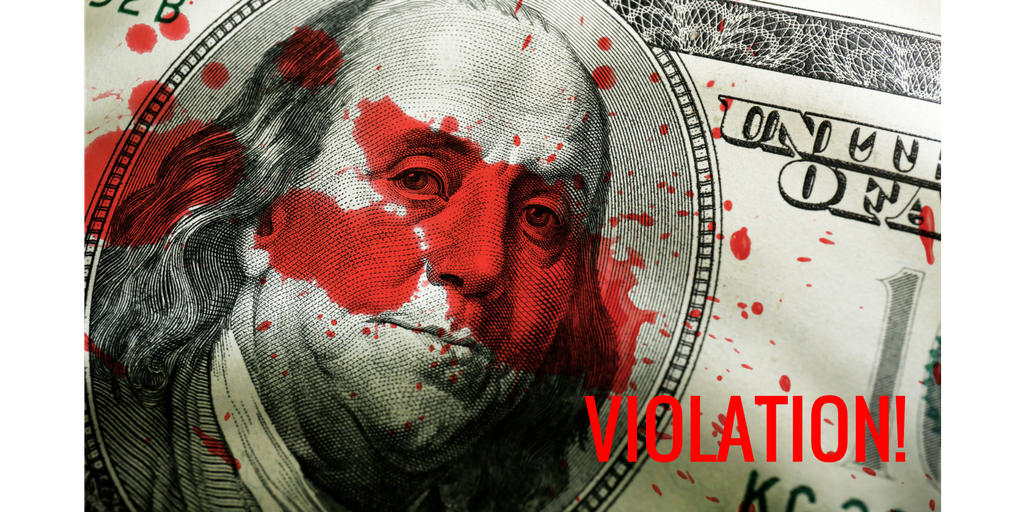Q: What has two Million phony accounts, 5,300 fired employees, a fine of $185 million and a retiring leader enjoying $124 million in stock and options after retirement?
A: Wells Fargo Bank, the latest bank to suffer the scrutiny of the truth and forced to answer for taking advantage of its customers’ trust.
Carrie Tolstedt, unit leader of Wells Fargo’s community banking division, is set to retire at the end of this year after 27 years of service. The announcement of her retirement in July, less than two months ago, painted her with the “dear friend” brush included the phrase “standard-bearer for our culture.” She departs with over $124 million in stock and options.
However, her division was just fined $185 million for opening phony accounts to hit sales product goals, actions described by the Consumer Financial Protection Bureau (CFPB), as a “violation of trust and an abuse of trust.” The bank’s shareholders will shoulder this fine, the largest ever imposed on a bank.
At this time, Wells Fargo hasn’t said they will try to recover any of that amount from Tolstedt.
It is important to note that as the leader of the unit, Tolstedt wasn’t implicated in the CFPB review of the situation, nor has anyone linked her with the fraudulent activities that took place in her division. Furthermore, the $124.6 million in stock and options was earned over her entire career, and not just the five years where the fraud took place.
However, it looks bad, and looking bad, after damaging customer’s trust, is almost as bad as actually being bad.
A Customer Experience has several influences. We define it as a perception of the rational, physical, emotional, subconscious and psychological interaction a customer has with an organization. Our latest book explores the emotional and psychological interactions that drive customer’s behavior, and Wells Fargo illustrates what can happen to these perceptions when things go wrong.
When a customer is lied to, it matters. It creates negative emotions that are hard to overcome. When the leaders of the organization are awarded millions for their service, it creates MORE negative emotions that are even more difficult to overcome.
These emotions create a psychological reaction in the customer that colors their perception of the brand and that costs the company dearly. Wells Fargo should attend our global book launch webinar for my new book, ‘The Intuitive Customer’ Palgrave MacMillan 2017 and find out how to manage your Customer Experience through the use of behavioural economics.
What is the perception of awarding the leader of the division that just violated your trust with hundreds of millions in stock and options? Does it not imply at a psychological level that the organization condones the actions of her division? After all, isn’t she the standard-bearer for the culture?
I have to ask What were the managers doing?
There is always pressure to make your sales goals. That is part and parcel of the job. Sales people thrive on this and are compensated well for making their goals. These are not inherently bad, but they do reflect the values of your organization. If you Key Performance Indicator (KPI) is sales, you are not putting the customer at the center of everything you do.
However, getting to your goal by opening a fake account in one of your customer’s names is deplorable. It reflects a poor employee culture that this practice was so widespread. These decisions were made at the sales person level, but each of them had a manager. One must wonder how they overlooked this flagrant abuse of customer trust, and human decency in the pursuit of KPIs. I, for one, also wonder what kind of pressure was the organization exerting that team members felt the need to compromise the relationship in this way?
One of our team members banks at Wells Fargo. She had both a savings account and a credit card opened without her consent during the time period in questions. She spoke up and both accounts were closed. Today she received this message in her email:
On the bright side, Wells Fargo is eliminating the product goals that got them into this mess. Further, the email says they will reward their employees for “delivering great experiences and creating positive outcomes,” which is a key factor in helping your organization improve your Customer Experience. After all, that which gets incented gets done!
Or will it? I have an inherent distrust of banks. When Royal Bank of Scotland offered it’s mea culpa a few years back, I was skeptical that they were sincere or that anything would change. I am afraid it is difficult for a leopard to change its spots, and that applies to me as well as the banks!
Wells Fargo has its work cut out for it to recover from this breach of corporate responsibility. Time will tell if they can stitch together an adequate recovery to regain customer’s trust. If they can construct KPIs that do not push products on customers that don’t want them and reward those that bear this standard, they will have given their organization the cultural makeover it’s clear they need.
What do you think? Will Wells Fargo make it right? I’d be interested to hear your thoughts in the comments below.
Learn more about gaining your customer’s trust and loyalty in our new book: The Intuitive Customer – 7 Imperatives For Moving Your Customer Experience To The Next Level. Attend our free book launch webinar on October 18th.
If you enjoyed this post, you might be interested in the following blogs:
Employee Culture: Why Amazon is on Top and Bank of America Isn’t
RBS: We Were Wrong; The Customer Must Come First…
When Household Names Lie and Cheat and the Customer Experience
Colin Shaw is the founder and CEO of Beyond Philosophy, one of the world’s leading Customer experience consultancy & training organizations. Colin is an international author of five bestselling books and an engaging keynote speaker.
Follow Colin Shaw on Twitter @ColinShaw_CX


